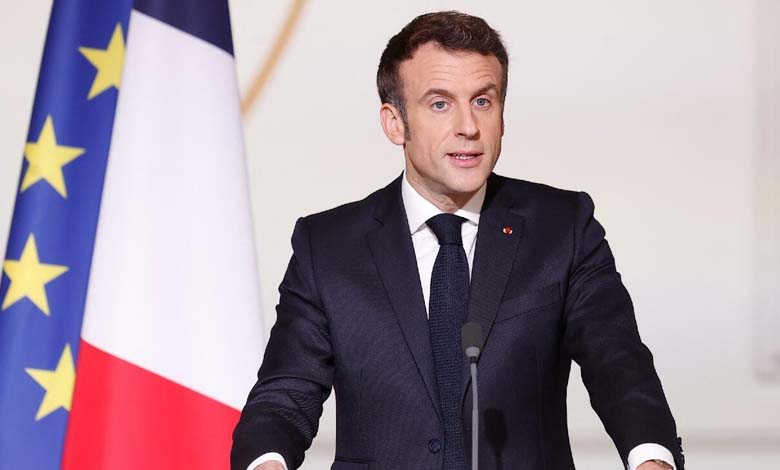Macron and the Parliament card: preemptive pressure or forced choice?

Whether Emmanuel Macron’s potential dissolution of Parliament is viewed as a preemptive pressure tactic or as a last-resort maneuver, it nonetheless marks a profound shift in France’s governing philosophy. The French president’s open declaration that he might dissolve the National Assembly represents an unprecedented moment in the history of the Fifth Republic — never before has a head of state wielded this constitutional weapon with such clarity and assertiveness.
-
After the Bayrou bomb… three scenarios on Macron’s desk
-
Make Sure the Door Is Closed… Trump Gives Macron Marriage Advice After Slap Video
For many political analysts, Macron’s threat aims to reset the political landscape and restore authority over a fragmented parliamentary majority. In doing so, he seeks to reimpose institutional discipline in a political climate marked by gridlock and growing friction among rival blocs.
Observers recall that in 2024, after his party’s defeat in the European elections, Macron actually dissolved Parliament to regain control in a defensive move. But today, the situation is different. The dissolution is no longer reactive; it is strategic. By brandishing it again, Macron turns what was once a constitutional safeguard into an instrument of political leverage — a shift that illustrates the transformation of the French presidency into a more assertive and tactical form of leadership.
-
Report on the Brotherhood threat sparks divisions within the French government and reveals Macron’s plan to counter the group
-
Agreement Between Macron and Tebboune to Resume Dialogue in the First Breakthrough of a Prolonged Crisis
The government’s narrow escape from two recent no-confidence votes, brought by both the far-left France Insoumise and the far-right National Rally, temporarily stabilized Macron’s position. Yet the equilibrium remains fragile. Since the 2024 dissolution, the Assembly has been divided into three major blocs — left, center-right, and far-right — none commanding a clear majority. This fragmentation has produced chronic instability, and the specter of paralysis looms large, a situation Macron appears determined to preempt by wielding the threat of dissolution.
Dominique Reynié, a professor of political science at Sciences Po Paris, notes that Macron “now approaches the political arena with an unprecedented degree of transparency and boldness.” He explained, “When a president publicly mentions the dissolution, it is no longer a distant theoretical option — it is a political signal aimed at pressuring hesitant parliamentary groups. It’s not just a constitutional reminder; it’s a clear call for obedience.”
-
“He insulted all Africans”: Macron’s Comments Spark Repercussions in Burkina Faso
-
Israel and the “Lebanon Truce”: The “Ministers’ Revolt” Undermines the “Biden-Macron” Proposal
According to Reynié, this tactic might strengthen temporary alliances within Macron’s centrist bloc, as moderate parties would rather preserve political stability than face unpredictable snap elections. “If the 2024 dissolution was an improvised act,” he adds, “the current threat is calculated, deliberate, and offensive. The dissolution is no longer a reaction to crisis — it has become a strategic instrument of power.”
Political scientist Pascal Perrineau from Sciences Po echoes this view, arguing that Macron’s stance represents “a break from the traditional political pragmatism” that characterized previous presidents of the Fifth Republic. “Never before,” he notes, “has a president made the threat of dissolution so public and institutional. Macron now sees returning to the ballot box not as a failure, but as a legitimate way to resolve political deadlock.”
-
The ‘La France Insoumise’ party rallies to impeach Macron
-
Macron shouts in the face of “cowards”.. and Europeans seek a path “without America”
However, this bold approach carries risks. It places Parliament at a crossroads: either align behind the government to avoid another crisis or resist presidential pressure and risk an electoral shake-up that could drastically alter the balance of power. In this sense, dissolution has become a strategic lever embedded at the very core of governance.
Ultimately, Macron’s invocation of dissolution is no longer a theoretical safeguard — it is a political instrument in active use. It signals a profound evolution of the Fifth Republic, where the boundaries between executive and legislative power grow increasingly fluid. By integrating this threat into his political strategy, Macron redefines the relationship between the presidency and Parliament, ushering in a new era of institutional tension — one where governing France becomes a continual exercise in controlled confrontation.












